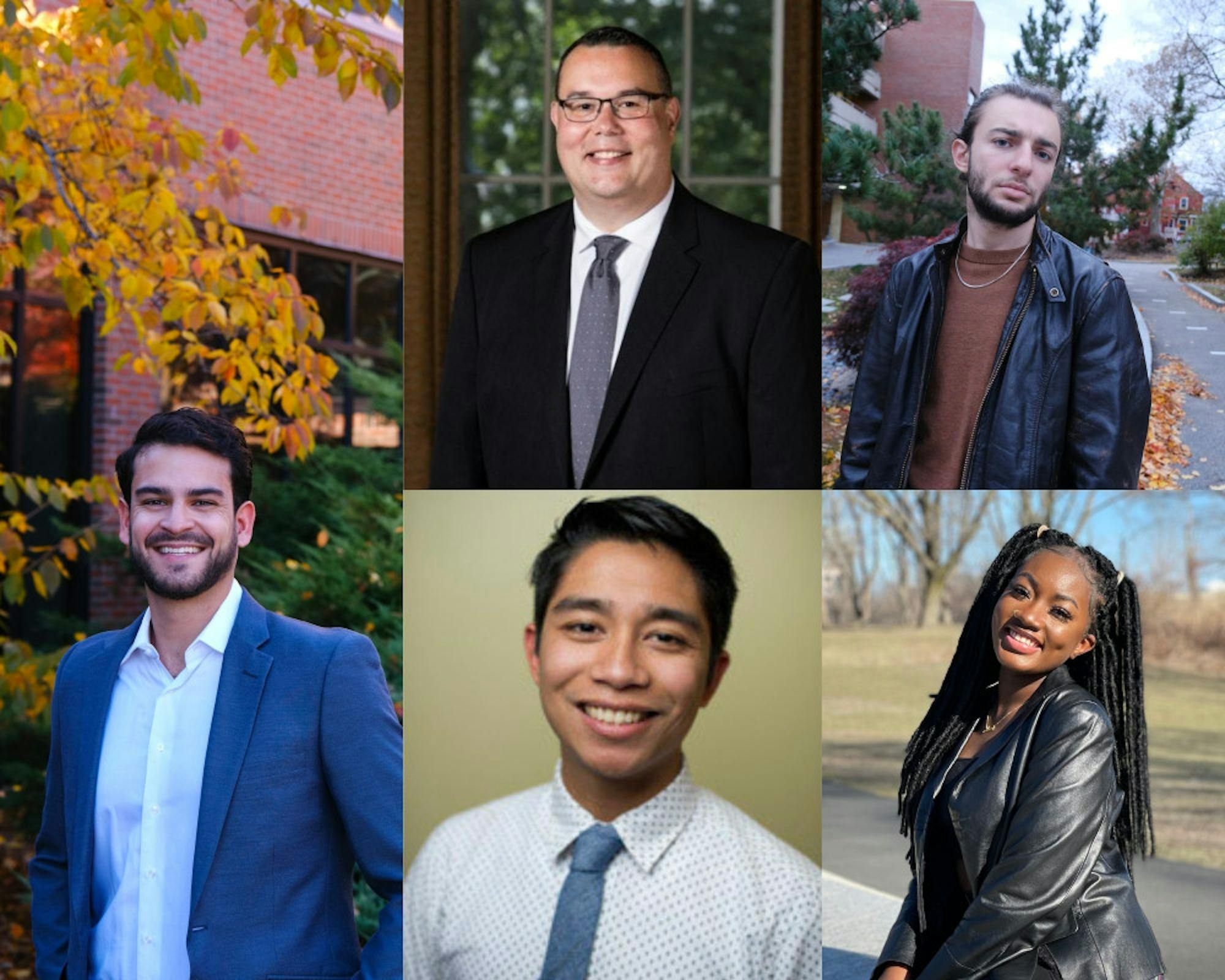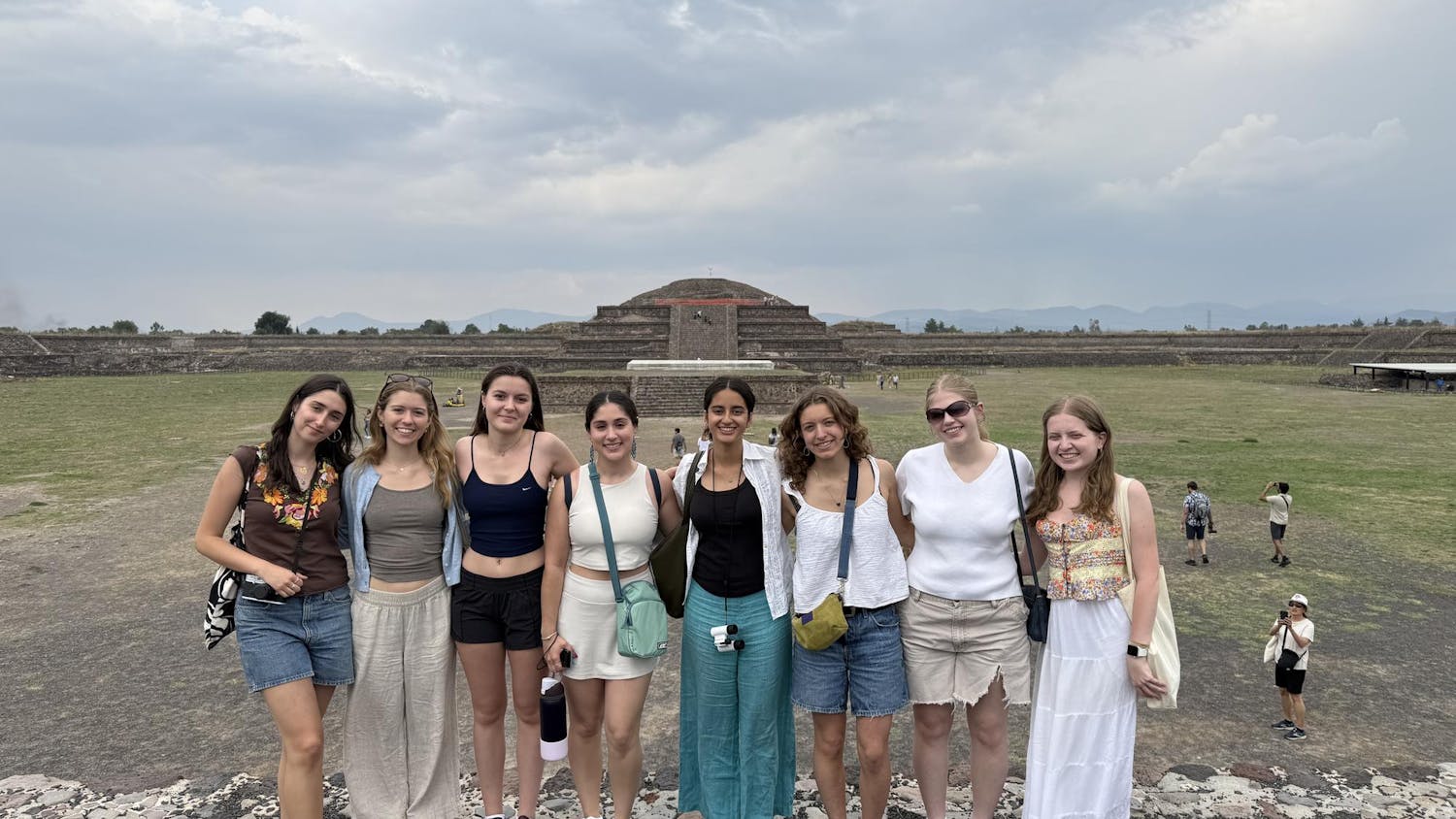In July 2020, University President Anthony Monaco made a commitment to make Tufts an anti-racist institution. Almost a year and a half later, many members of the Tufts community have been left unsatisfied with how these efforts have materialized on campus.
Zach Everett, a second-year resident assistant in Lewis Hall, shared that there have been two incidents of racist and antisemitic acts being committed in Lewis Hall this semester alone. In one of the incidents, Everett’s Black Lives Matter posters were willfully torn down and removed.
“As an RA, I had gone above and beyond to try to facilitate a nice living community. As I decorated the common room, a part of the decorations I put up were my Black Lives Matter protest signs [from last summer],” Everett said. “When I woke up at about midnight, the night of early move-in [day], I noticed that my signs were torn down as I went to the bathroom.”
Following the incidents, Everett said that it was difficult for them to live in a dorm where they no longer felt safe.
“A few weeks later in Lewis, a mezuzah was torn down a Saturday night,” Everett said. “I was just told that the investigation was ongoing. But I didn’t know what to do with that … I live in Lewis, and this is my home, but I live right off the door where this happened. I found it challenging and uncomfortable being in that space at that point.”
Everett’s hope for action from the university, however, soured into frustration.
“The next step that [the Office of Residential Life and Learning] took was sending out a university-wide email, titled, ‘Hate has no place at Tufts,’” Everett said. “While it was nice to see Tufts taking some form of action, I was very frustrated that the only actionable step listed was that they would hold a university-wide meeting, which I still looked forward to.”
At the university-wide meeting, Everett was disheartened and shocked by the fact that none of the university’s administrators attended.
“The meeting happened on a Sunday in the Lewis common room. When I got there, the common room was almost completely empty, except for the five people who were there,” Everett said. “We sat there and waited for more people to show up … This was the one and only actionable step that Tufts said they would take, and there were six people in attendance. I was so immensely disappointed and shocked by the level of inaction.”
Prompted by the student body’s inaction, despite the recurrence of incidents of hate on campus, Everett wrote an email to the university administrators proposing that Tufts should hold more anti-racist trainings and classes.
“I proposed a mandatory anti-racist class that students should attend. I wrote about how the meeting’s turnout shows that Tufts student does not care enough about anti-racist practices,” Everett said. “So that in the future, when these [incidents of hate] happen, students know that they are the acts of injustice and know what steps that they can take [as a response].”
Similarly to Everett’s proposal, Tufts Community Union President Amma Agyei called for increased anti-racist training, a more proactive way for the Tufts community members to approach and understand anti-racism.
“I definitely feel like there should be more training for students, especially during orientation, [as] the university has training on alcohol [consumption], trigger warnings... and sexual consent,” Agyei said. "If Tufts is an anti-racist institution and takes its words seriously, then I would assume the university to have training in that regard.”
In addition to Everett and Agyei’s remarks, Aaron Parayno, director of the Asian American Center, noted that there is much more for the university to do and consider financially and institutionally in actualizing the anti-racist goals.
Namely, despite the university announcement that it would commit “at least $25 million of university resources” to theanti-racist cause over five years, the Division of Student Diversity and Inclusion, which supports historically underrepresented students at Tufts, has not seen a much-needed increase in their annual budget, Parayno explained.
“Budgets are moral documents,” Parayno began. “If we are not factored into certain budgets, like that $25 million … that means that we are not as morally important point for the university [within the anti-racist initiative context].”
Parayno called for greater university support for the Division of Student Diversity and Inclusion as the Tufts student body continues to become more racially and ethnically diverse.
“Over the span of [past] 10 years, Asian American population on campus has increased [by] over 200%,” Parayno said. “We haven’t had increased resources in supporting our Asian American students at the center.”
Parayno detailed how the Asian American Center needs more staff, for example, to better support their students across the university's three campuses.
“[In the wake of the Atlanta shooting last March] the assistant director at the Center, Emily, and I were supporting students not only here on Medford/Somerville campus, but we were getting requests to support students at the medical school and the dental school,” Parayno said. “We want to provide that support for everyone, but at the same time, we are two people, right?”
Still, though, university administrators hold the position that the initiative is just taking time to evolve and take root in the university’s culture and norms.
In his statement on Feb. 17, 2021, Monaco acknowledged even then that there would be room for improvement.
“Our recommendations, while thorough and well-intentioned, are not fully comprehensive or complete, and no implementation process is perfect," he wrote.
“Some community members may be dissatisfied by these reports viewing them as falling short, and others may disagree on the best way to achieve our stated purpose,” Monaco added in his written statement. “We should not shy away from these tensions. Respectful discourse and debates are the hallmarks of a thriving academic community,” Monaco added in his written statement.
Within this context, Joyce Sackey, the university’s associate provost and chief diversity office for Health Science campuses, shared how the university continues to work on fostering a more inclusive community at Tufts both at institutional and structural levels.
“We are excited to share that we have hired a Director for the Initiative — Lisa Fenn, who will assume her role on November 22, 2021,” Sackey wrote in an email to the Daily.
The Rev. Elyse Nelson Winger, university chaplain, wrote in an email to the Daily that the University Chaplaincy also hopes to contribute and extend the university's anti-racist efforts, moving forward.
“The University Chaplaincy’s mission includes a commitment to educate about spiritual and ethical issues in society and the world, and we work across chaplaincies, through our interfaith programming and campus partnerships to create opportunities … that align with the university-wide anti-racist initiative,” Winger said.
Winger went on to explain actions the Chaplaincy continues to take.
“Signature programming examples include our annual partnership with the Africana Center, Tisch College for Civic Life, and Race, Colonialism and Diaspora studies for the Rev. Dr. Martin Luther King, Jr. Symposium as well as this year’s programming related to Valarie Kaur’s powerful and challenging book, See No Stranger: A Memoir and Manifesto of Revolutionary Love," Winger said.
Alfredo Ramirez, a Fletcher School student who was a part of theCompositional Diversity Workstream, shared his hope for the university's initiative as he detailed some of the salient questions that he raised and continues to grapple with throughout his time at Tufts.
"As a student, I do not get paid by Tufts, and so I have had the liberty of asking challenging questions like, what [do] our promotions look like [for the faculty and staff]?" Ramirez said. "Do we have the right opportunities for different faculty and staff of color to thrive at Tufts? In asking these questions, it catalyzed a conversation within our committee about what anti-racism truly means at a much broader sense, beyond just a set of policies and programs [for the initiative]."
Reflecting on his involvement with the university’s anti-racist efforts, Ramirez described the university’s initiative as “enlightening,” “inspiring” and “tough,” a work in progress, ever-perfecting itself.
“Anti-racism is not a goal that you are going to get to, and it is not a metric that you are going to hit,” Ramirez said. “It is something that you [instead] have to work toward consistently and constantly … It is not just a committee … strategy, or a policy, but rather it is embedded into everything that you do.”
Echoing Ramirez’s sentiment, Robert Mack, the university’s chief diversity officer and associate provost for the Somerville/Medford and SMFA campuses, emphasized that anti-racism can never be “achieved” or “accomplished,” for it represents an ongoing, conscious effort both individually and collectively for the Tufts community moving forward.
“[The goal of the initiative is to] get the members [of the] Tufts to a place where they can recognize, name, and then effectively respond to racism as it arises and presents itself,” Mack wrote in an email to the Daily. “We will never rid the community of racism, but we can learn how to disrupt it, dislodge it, and divorce ourselves from its snares over and over again.”






